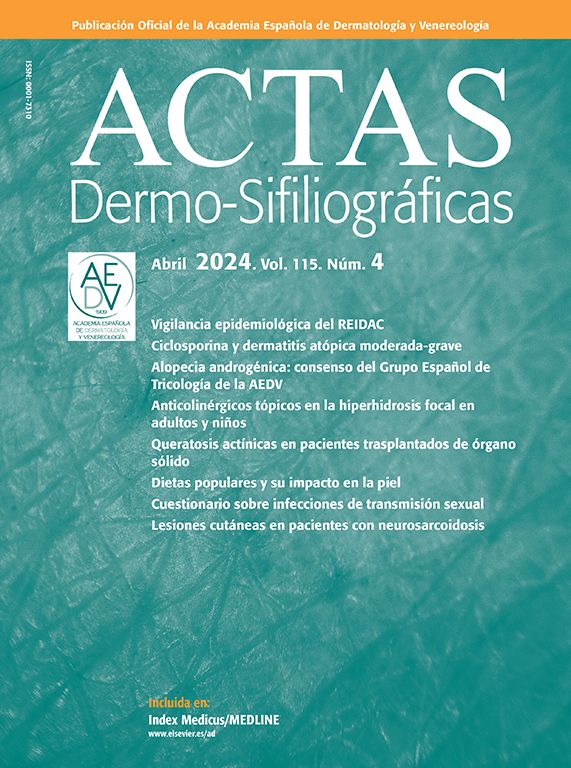La psoriasis es una enfermedad crónica que cursa en brotes. Algunos pacientes los sufren con tanta frecuencia que precisan un tratamiento continuo para su control. Es en muchos de estos pacientes donde empleamos las nuevas terapias biológicas como el ustekinumab, que nos permiten tratamientos prolongados evitando la toxicidad acumulada que tienen muchos de los tratamientos clásicos. Sin embargo, a lo largo del curso de estos tratamientos hay situaciones en las que sería deseable interrumpirlos o al menos sopesar adecuadamente con el paciente el riesgo-beneficio de mantenerlos.
En este capítulo, partiendo de un caso clínico, revisamos algunas de estas situaciones especiales como el embarazo, las interrupciones temporales por vacunaciones o cirugía y qué tenemos que hacer en caso de que nuestros pacientes en tratamiento con ustekinumab viajen al extranjero o procedan de zonas endémicas de determinados problemas infecciosos. Pretendemos facilitar la toma de decisiones ante estas situaciones especiales que se nos plantean a diario en la consulta.
Psoriasis is a chronic disease characterized by recurrent flares and in some patients the outbreaks occur so close together that continuous treatment is necessary. Newly developed biologic agents such as ustekinumab are often used in such cases because they offer the possibility of long-term treatment without the risk of cumulative toxicity associated with many traditional psoriasis therapies. There are, however, situations when biologic treatment might have to be interrupted. In such cases, it is important to discuss the issues with the patient and carefully weigh the benefits and risks of continuing or interrupting treatment.
In this chapter, we review a series of clinical cases and provide insights that will facilitate decision-making in routine clinical practice regarding the use of ustekinumab in special circumstances. The cases discussed include patients who become or wish to become pregnant, temporary interruptions due to vaccination or surgery, and patients who plan to travel to or come from a country where opportunistic infections are endemic.





